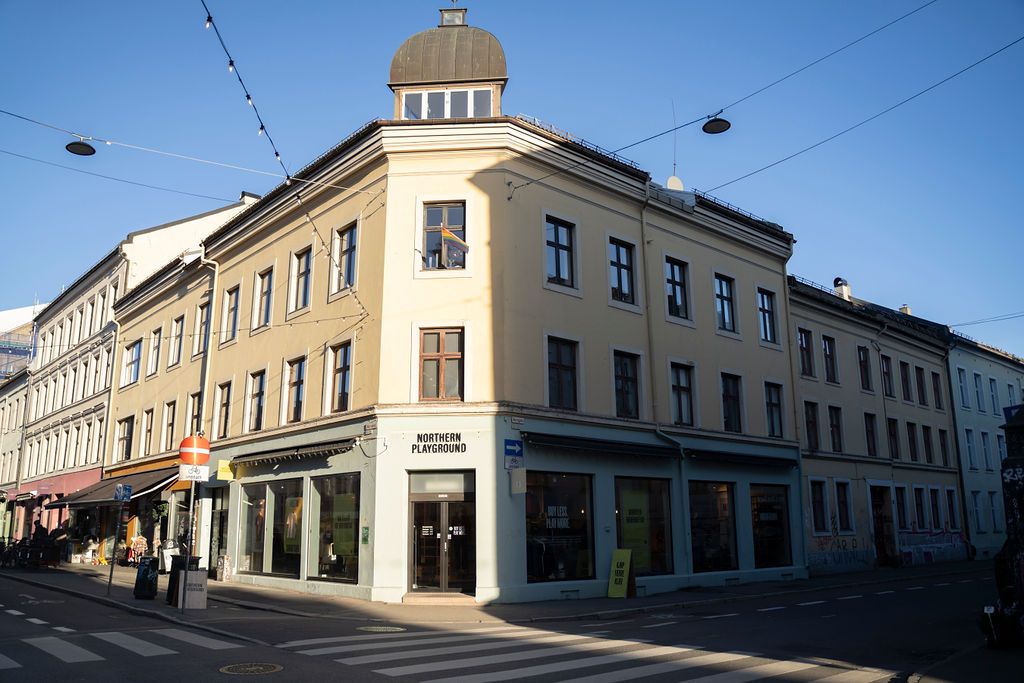
WHY LOCAL PRODUCTION
Local production has become an integral part of our operations. Previously, we produced at Tøyen in Oslo, and now we’re working hard to scale up the production happening in our Microfactory inside our shop at Grünerløkka in Oslo. There are countless reasons why local production is important.
In short: We don’t advocate for local production because we cheer for Oslo or Norway. We advocate for local production because we cheer for the world.
1. ENVIRONMENT
Local production enables a whole arsenal of possibilities in the name of sustainability: shorter transportation distances, easier implementation of circular models, better alignment of production with demand, and most importantly: the same person who produces the product can also repair it.

2. PROXIMITY TO CUSTOMERS ENSURES QUALITY
A producer who sells to her neighbour cares about the product she makes. She wants the customer to love the product, and at the same time, she avoids using harmful chemicals in the product that risk flowing in the river near where she lives. Local production provides higher quality, benefiting both people and the environment.
3. REDISTRIBUTION OF POWER AND CAPITAL
When we purchase goods, they’re often made in factories with thousands of workers earning extremely low wages, where only the factory owner profits. Local production supports many small businesses owned by “everyday” people. This redistributes power and wealth across the population rather than concentrating it in the hands of a few.

4. INNOVATION
It is the small (local) companies that often drive innovation and come up with solutions to societal problems. Large corporations, by their nature, focus on protecting their current revenue streams and are less inclined to change.

5. BETTER PRODUCT VARIETY
A market with many small local producers gives us consumers better and richer product choices and competes with mass production. And that’s something we all appreciate.

6. CUTTING OUT MIDDLEMEN
With local production, it’s easier to sell directly to the customer. This means the producer retains a larger (and fairer) share of the profits. It also means the producer can focus on quality without being squeezed on price.
7. TRANSPARENCY AND FAIR WAGES
Local production makes it easier for customers and others to gain insight into working conditions. A factory that hosts daily visits from customers is unlikely to cut corners and is more likely to pay workers a fair wage.
8. CRISIS MANAGEMENT AND PREPAREDNESS
Dynamic and thriving production environments allow us to quickly respond to crises. If the production of vital goods is concentrated among a few large producers on the other side of the globe, we become extremely vulnerable. Local production, in other words, provides better preparedness.

9. LOCAL INGREDIENTS
When producing locally, it is easier to use local ingredients. This benefits quality (especially for food) but also allows for the utilization of resources that would otherwise go unused (such as surplus textiles from the local factory).
To put it simply, we care as much about the small cheese producer in Bordeaux as we do about the local cheese producer in Oslo. The point isn’t the passport of the producer; the point is that it is local and can create an outstanding product.
As previously mentioned: We don’t advocate for local production because we cheer for Oslo or Norway. We advocate for local production because we cheer for the world!
Read more about or local Microfactory:
